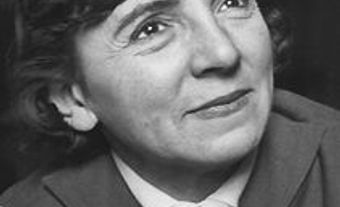
Lévesque, Raymond
Raymond Lévesque. Singer-songwriter, poet, actor, b Montreal 7 Oct 1928. After studying the piano with Rodolphe Mathieu and drama with Mme Jean-Louis Audet, he began writing songs in 1943. In 1947 he came to the attention of Fernand Robidoux, who invited him to appear on his CKAC (Montreal) radio program and performed some of his compositions. Lévesque was co-host 1949-51 of the CBC radio program 'Grand'maman Marie' and later was a singer and host in programs on CKAC and CHLP. After serving as host 1952-4 for the CBC TV variety series 'Mes Jeunes Années' with Colette Bonheur, he left for Paris. He remained there for five years, singing in cabarets in Montmartre and on the Left Bank. He also made four singles for Barclay, performed on several radio programs, and toured France with the entertainer Annie Cordy. Eddy Constantine recorded Lévesque's song 'Les Trottoirs' in 1954, while Bourvil popularized his 'La Vénus à Mimile'. In 1956 Lévesque wrote 'Quand les hommes vivront d'amour', his greatest success, which was performed by several Quebec singers'.
On his return to Montreal Lévesque performed 1959-60 as a member of the Bozos, sang in various clubs, and acted on stage and in TV dramas, often appearing in the plays of Marcel Dubé. While working in a succession of his own cabarets (Le Bar du Music-Hall, Le Parlement, L'Évêché), he staged some 40 revues (summers 1961-74) at the Butte à Mathieu in Val-David, north of Montreal. Until 1984 he was a featured performer in many variety shows in Montreal (at Expo 67, Comédie-Canadienne, Le Patriote, PDA) and Quebec City (La Résille, Grand Théâtre) and was a guest on many TV programs. A true chansonnier of the Parisian type, Lévesque staged numerous revues during the 1970s and 1980s, which combined song, comedy and political satire: Tharèse (1974), On veut savoir (1980), C'est à ton tour mon cher René (1983), Waitress (1986), Deux mille ans après Jésus-Christ (1988), etc. He received the Félix Award 'Témoignage de l'ADISQ' in 1980.
In 1990, after a career of more than 40 years, Raymond Lévesque remained as Claude Gingras once described him in La Presse (Montreal 19 Feb 1968): 'a genuine artist, who has something to say, who has wit, who can find just the right words, and who knows how to write a song'. Through his poems, his monologues, and such songs as 'Le Coeur du Bon Dieu,' 'Rosemont sous la pluie,' and 'Bozo-les-culottes,' he has slowly drawn away from the influence of Charles Trenet. His compositions, at one time so sentimental, have become more and more humorous, incisive, and socially committed. Without really ever achieving stardom himself, Lévesque opened the way for the wave of chansonniers in the 1960s. Pauline Julien and Fernand Robidoux have both dedicated records to him.
After Quand les hommes vivront d'amour (Quebec 1968), Lévesque published many collections of poetry in Montreal: Au fond du chaos (1971), Le Malheur a pas des bons yeux (1971), On veut rien savoir (1974), Le Temps de parler (1977), Électrochoc (1981) and Quand les hommes vivront d'amour II (1989). In Montreal he also published one play, Bigaouette (1970), as well as his memoirs, Raymond Lévesque, d'ailleurs et d'ici (1986), and a collection of songs, Le P'tit Québec de mon coeur (1990). The Prix CIEL-Raymond Lévesque, created in his honour, was awarded, among others, to Jim Corcoran, and Luc de Larochellière.

 Share on Facebook
Share on Facebook Share on X
Share on X Share by Email
Share by Email Share on Google Classroom
Share on Google Classroom

